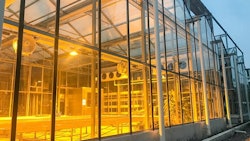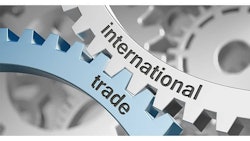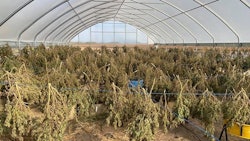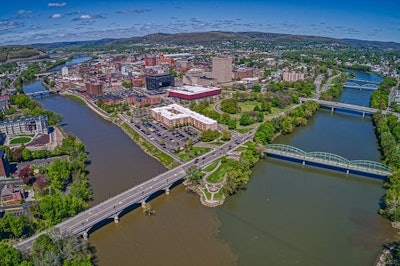
Last month, the state of New York released its regulations for food, beverages and dietary supplements containing cannabidiol (CBD) and other hemp-derived cannabinoids for human consumption. The news teed up a public comment period and, in the long run, opened the state’s burgeoning hemp industry to a new market segment: the in-demand CBD retail product space.
For growers and processors alike, it was an important step in the development of a robust hemp marketplace.
Empire Standard, based in Binghamton, is one of more than 100 licensed processors in New York. CEO Kaelan Castetter says the regulatory news was welcome as a normalizing factor for the industry. We spoke with him to learn a bit more about how the new rules will affect growers and processors in the state—and what we can expect to see as we head into 2021.
Eric Sandy: On first blush, what’s your impression of these new regulations?
Kaelan Castetter: It’s interesting, because I'm also the vice president of New York Cannabis Growers and Processors Association. We’re very active in Albany. Since 2019, I've been working with the sponsor of the bill that resulted in the hemp extract law and these regulations. The original intent of the hemp extract law was legitimatizing the industry here and to push forward and preempt the FDA—in New York, at least—in saying, OK, we can regulate safe supplements and food and beverage products and a host of other products that are quality and that the consumer knows are quality. We can really take the lead on this. It's taken a while. It took a while for these regulations to come out and the regulations—they didn't necessarily really line up with the intent of the bill completely.
So, food and beverages are allowed, and that's excellent. We see supplements and some of the standardization around that and who's manufacturing, the GMPs, etc. But, of course, you see a ban on the retail sale of hemp flower, which is astonishing because it is definitely one of the hottest parts in the market. And many, if not most hemp growers in New York state are selling or growing for high-quality flower. For the state to take that market away now, of all times, is the strange. And it doesn't bode well necessarily for the marketplace. I think some of [the guidance] is a little overly regulated, too; for instance, the cap of 3000 milligrams per unit for supplements. It doesn't really have any scientific or logical basis to it. Some of the disclosures to put on the labeling are a little onerous, but I do think it's a necessary step as we look to legitimize the industry.
ES: Have you picked up on similar reactions across the state?
KC: Yeah, absolutely. I think the outrage is mostly placed on the ban on hemp flower sales. It’s a bright spot in the marketplace, and many people have been setting up to grow [flower]. That’s where a lot of frustrations in the industry are, and through the NYCGPA that is what we're hearing from our members. But I think, generally, most industry members understand the need for these regulations. When you look past that, the food and beverage piece of it is big, right? The New York marketplace is massive. And so, now, for companies to be able to sell food and beverage into New York City and then surrounding suburbs and even in the bigger cities in upstate New York, that’s huge. There’s a lot of excitement around that. There’s also a lot of trepidation around the flower and a couple of the other stringent pieces that could be changed. There’s a public comment period up until Jan. 11. So, I am pretty confident, and I've had some good talks with some of the regulators in the governor's office and Department of Health, and they're very open for change and they're looking for industry in play for, for sure.
ES: From a market standpoint, I wanted to ask about the 2020 harvest how things have been going. I know we're sort of in the thick of it still, but how's the season been going for you?
KC: I think there is—not just in New York, but across the country—a glut of supply in terms of material and intermediate ingredients. As a manufacturer, we buy from extractors throughout the state. I know, talking with them, that they do have good supply and they are moving it. They are moving their products, which is a good sign. We are more so getting a lot of feedback from the retail market. We have a lot of brands who we work with, and we distribute a lot of products throughout the state. The retail market is strong. It is not strong on oils, which is interesting. We’ve seen that part of the market certainly weaken. Flower sales are probably the fastest-growing product on retail shelves, for sure.
Other products, such as gummies and these other food and beverage products, supplement beverages: We have a product that we just released, an energy shot, like a 5-Hour Energy, a two-ounce bottle that we expect to be very well-received in the marketplace and very well-received by the owners of these stores. I think that what we're seeing as the market starts to mature is people looking more so for familiar products with CBD and hemp-derived cannabinoids as an ingredient, as opposed to, “Oh, let me get my CBD in sublingual oil form.” I think that’s an interesting trend.
ES: In terms of the growers themselves, do you see that base of farmers increasing into 2021?
KC: Unfortunately, I don't see it continuing to grow. There's 700 licensed farmers in the state of New York. Growing hemp for its cannabinoid content is a specialty crop. I don't think there is a need for that many growers. And I think they're seeing it, unfortunately; they've dived into the marketplace, and they’ve spent a lot of money and they don't have an outlet for their crop because the market just doesn't demand it. A little bit of crop, in terms of acreage, goes a long way. I do see the New York landscape for hemp growers transitioning more to the landscape of organic vegetable growers, where we're seeing one- to five-acre operations spread amongst maybe 100 to 200 growers.
I do think that you're going to see a contraction in terms of the amount of growers and the amount of acreage that they grow. Really, I don't see the ability for growth in that area until we have a more robust supply chain for fiber and grain, because I do think fiber and grain could hold huge promises. In New York, the climate is very conducive to fiber growing with an August harvest. We have very dry, very beautiful Augusts here in New York and it's ahead of soy and corn harvest season. The agricultural landscaping in New York is ready for large-scale fiber and grain production. But we need the federal government to incentivize the growth of these crops and to open up these markets before I really see the outlook for hemp growing to be a little more positive. Unfortunately, there's just not much that I can say in the way positivity for hemp growers in New York.
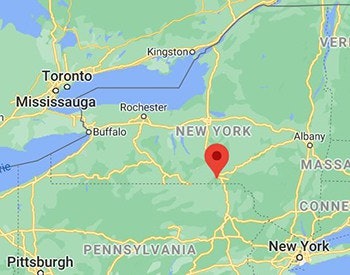 binghamton
binghamtonES: I did also want to touch on Binghamton just in general. I know there's been a lot of hemp business news out of that city and that area of the state. After a number of headlines, Empire Standard is standing tall. I wanted to get a sense from you about the importance of being based in Binghamton.
KC: I'm from Binghamton. I was born and raised. And so, this has been my home and is the home of my father, who works with me, and my CFO and COO Amman Weaver, who is also from Binghamton. The interesting thing about Binghamton is, yeah, we're seeing a lot of big headlines with Canopy Growth and these other large companies that have kind of fizzled out and haven’t really executed on their plans. And we’re still here. I think that's more of a reflection of the culture of Binghamton as a hub of innovation and growth. IBM started in Binghamton. Endicott Johnson Shoe Company, the precursor to Nike, being a behemoth in the shoe manufacturing world, started in Binghamton. We have this history of deep innovation and manufacturing.
Binghamton does have one of the best research institutions in the Northeast with Binghamton University, so our talent pool that we can draw from is excellent. Most of our people that we bring on are from Binghamton University. I'm super bullish on Binghamton as a hub for cannabis, not only in New York and not only regionally, but across the United States and across the world—because of our infrastructure, not just in our buildings but our human infrastructure. That’s our ability to pull innovators and to support innovators. So, I do think that this is where we're going to see a lot of small business growth, not necessarily these big headline companies, big companies with ticker symbols, etc. I think you're going to start to see a lot of entrepreneurial pursuits in Binghamton and the cannabis industry really start to break into the larger marketplace and the industry across the world. I can attest that to not just the infrastructure we have here and the people that we have here, but also the support amongst local politicians the support of the governor's office and really making Binghamton the place to be.









